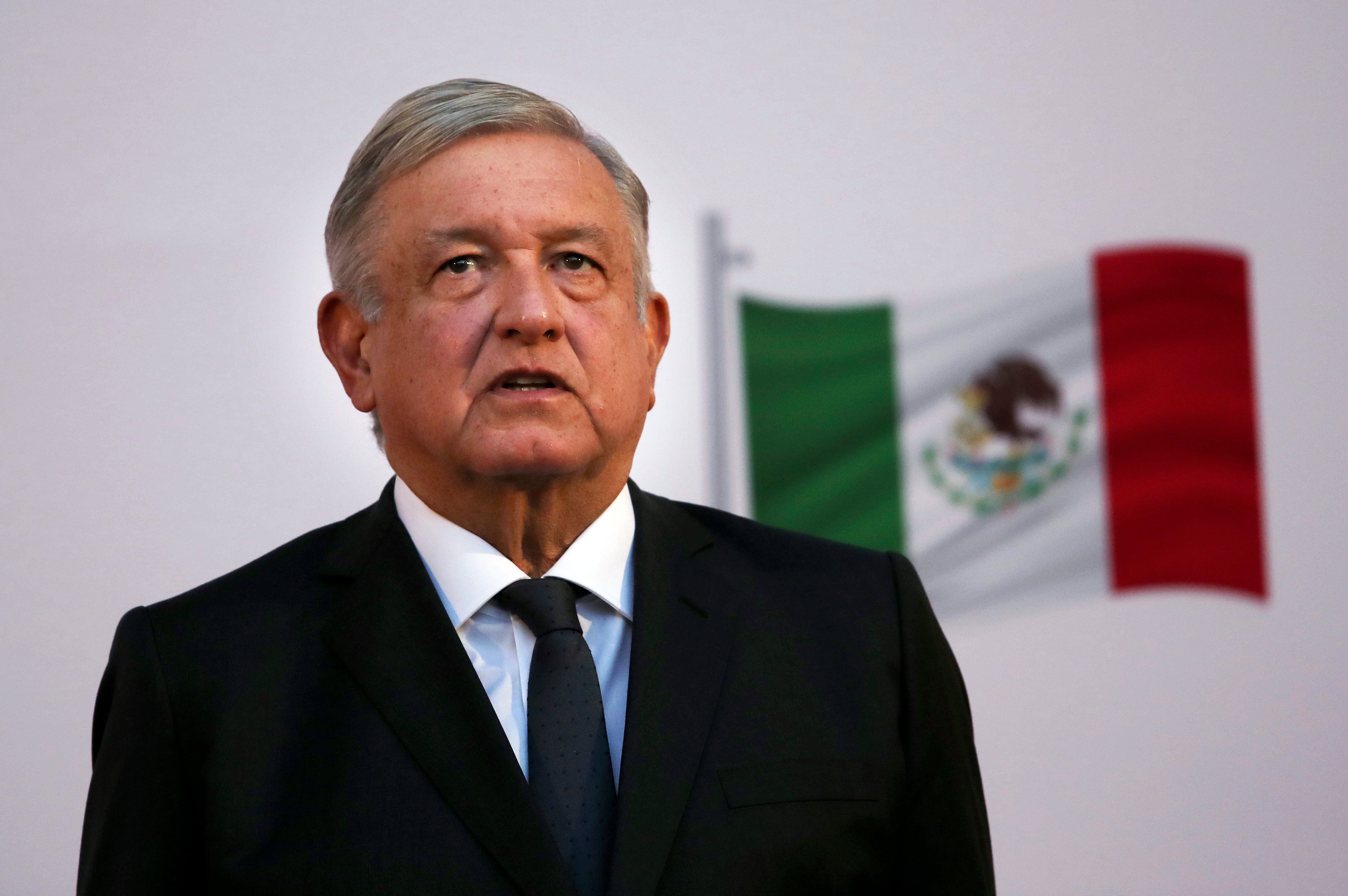Mexico's president continues to blast US investigation
Mexican President Andrés Manuel López Obrador has renewed his attack on the U.S. investigation of a former defense secretary and is warning the U.S. Justice Department to consider carefully its threat to suspend cooperation with Mexico

Your support helps us to tell the story
From reproductive rights to climate change to Big Tech, The Independent is on the ground when the story is developing. Whether it's investigating the financials of Elon Musk's pro-Trump PAC or producing our latest documentary, 'The A Word', which shines a light on the American women fighting for reproductive rights, we know how important it is to parse out the facts from the messaging.
At such a critical moment in US history, we need reporters on the ground. Your donation allows us to keep sending journalists to speak to both sides of the story.
The Independent is trusted by Americans across the entire political spectrum. And unlike many other quality news outlets, we choose not to lock Americans out of our reporting and analysis with paywalls. We believe quality journalism should be available to everyone, paid for by those who can afford it.
Your support makes all the difference.President Andrés Manuel López Obrador on Monday renewed his attack on the U.S. investigation of a former Mexican defense secretary and warned that the U.S. Justice Department should consider carefully its threat to suspend cooperation with Mexico
López Obrador defended the decision by the Mexican Attorney General’s Office not to pursue charges against retired Gen. Salvador Cienfuegos, and he mocked the results of the seven-year investigation by the U.S. Drug Enforcement Administration.
“How are you going to accuse someone based on photographs of phone screens?” López Obrador said in reference to hundreds of pages of evidence the U.S. government shared with Mexico after dropping charges against Cienfuegos and returning him to Mexico in November.
On Friday, Mexico published all of the information the U.S. had shared, spurring a rare public rebuke from the Justice Department that expressed disappointment in Mexico’s decision to drop the case against Cienfuegos.
“The United States Department of Justice is also deeply disappointed by Mexico’s decision to publicize information shared with Mexico in confidence,” the U.S. department said in a statement Friday. “Publicizing such information violates the Treaty on Mutual Legal Assistance between Mexico and the United States, and calls into question whether the United States can continue to share information to support Mexico’s own criminal investigations.”
López Obrador responded Monday: “I hope they think about it carefully, because I could say the same, too. We are disappointed with the DEA’s work.”
López Obrador accused the DEA of making up the case against Cienfuegos. The intercepted message exchanges allegedly between Cienfuegos and members of the H-2 cartel suggest the then highest-ranking member of Mexico’s military was helping the cartel by keeping the military off their backs and going after their rivals.
But López Obrador said the language used and the spelling mistakes committed by the person identified by U.S. prosecutors as Cienfuegos would not be possible from a mid-level officer, much less a high-ranking one.
“They put it together in an improper way, without professionalism, without ethics,” the president said. “No foreign government can undermine the dignity and prestige of our nation.”
López Obrador has heaped more responsibility — and power — on the armed forces than any recent president. The military was furious with Cienfuegos’ arrest in October at Los Angeles International Airport. The U.S. case also implicated other members of the military.
Following Cienfuegos’ return, Mexico’s congress passed a law that will restrict U.S. agents in Mexico and remove their diplomatic immunity.
Despite the heated rhetoric, López Obrador said he expects Mexico’s relationship with the incoming administration of President-elect Joe Biden to be unaffected.
But he said things would be done differently in the bilateral security relationship. “We cannot allow foreign agents to take charge of the functions of Mexico’s government.”